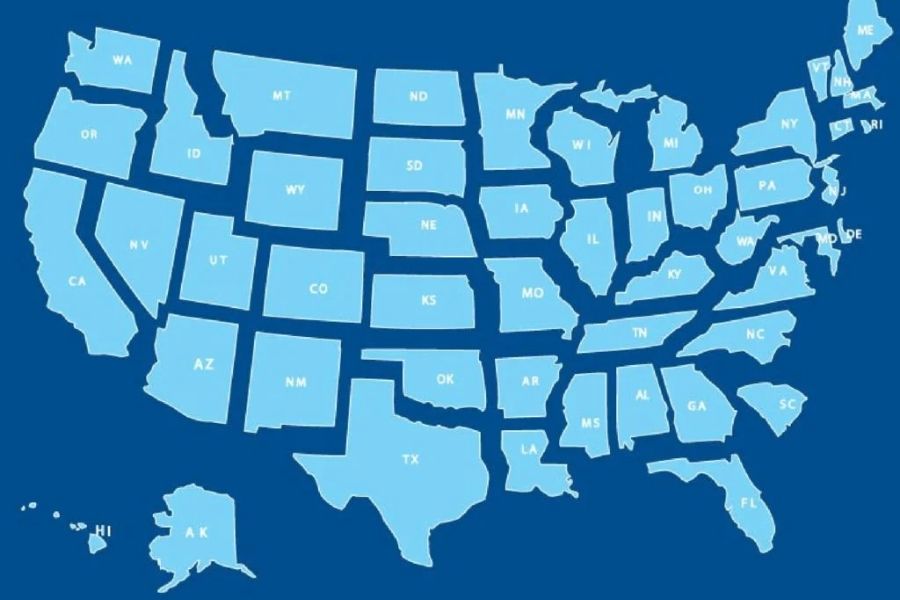Key Takeaways
- Paid time off (PTO) is usually a mandatory benefit that a company offers its employees. Learn about PTO payout laws and how they work.
- Each state has different PTO regulations. Scroll down to find all the necessary information to understand the PTO laws by state.
- Explore use-it-or-lose-it policies and some commonly asked questions related to PTO payout laws by state.
What Is PTO Payout Laws & How Does It Work?
Paid time off (PTO) is an employee perk that enables them to take time off work while still receiving pay. Employees who leave a business with unused PTO may be eligible for a PTO reimbursement as part of their final wages.
Do companies have to pay out PTO? Any state legislation does not require PTO. Yet, where an employer does offer it, there may be rules governing the classification of PTO. PTO can refer to several types of paid leave, including:
- Sick leave
- Vacation time
- Bereavement
- Jury duty
- Holidays
- Personal days
PTO laws exist on a municipal, state, and federal level. Regardless of the specific employee they affect, PTO rules aim to identify whether employees are eligible for pay while on leave.

Are companies required to pay out PTO?
So, how do PTO payout laws work? PTO payment works in a few different ways. Still, certain states have rules that specify how businesses must manage it. Regarding PTO payment, the two laws are as follows:
- Employers must include any PTO in the final paycheck of voluntary resigned, laid off or final termination employees as per their employment contract policy and state laws.
- Employees who have “use it or lose it” in their agreements at the end of the year have no right to roll over any accumulated PTO into the following year.
Do companies have to pay out PTO? Employers can combine both laws, depending on the rules in your state. Your employee handbook and PTO policy need to specify any additional payout-specific regulations. For instance, employees may cash out their vacation time at the end of the year, even though businesses are not legally required to do this.
PTO Payout Laws By State: 50 States
Federal law does not apply to paying accrued and unused vacation time to terminated employees. But, since state laws govern regulations, it is essential to be aware of them. Reviewing all separation compensation legislation is also crucial if your business operates in various states.
The following table provides the essential information you need to know regarding which states require PTO payout.
You can also visit your state’s official website for information on which states require payout of unused vacation and each state’s page regarding additional payroll tax obligations.
| State | Use-It-or-Lose-It Policy | PTO Payout Requirement(s) |
| Alabama | No | Based on the employer’s policy. Yet, employers cannot unilaterally terminate a formal vacation policy. Employers must provide employees early notice if they want to discontinue paying accrued, unused vacation time upon separation. |
| Alaska | No | Based on the employer’s policy. The state will uphold the employer’s regulations on vacation pay if the employer has a policy, commitment, or contract requiring it to be provided. |
| Arizona | No | If the employer has a policy or practice of paying vacation pay, it must be included in the wages due upon separation. |
| Arkansas | No | Suppose the employer offers paid vacation time based on an accrual plan, and the vacation time was accrued following that plan. The earned but unused vacation time needs to be reimbursed for terminated employees. |
| California | Prohibited | Accrued but unused vacation time cannot be forfeited except in cases where a collective bargaining agreement specifies otherwise. |
| Colorado | Acceptable in terms of vacation contracts if an employee handbook or employment contract includes the policy. | All vacation pay needs to be precisely paid and sent to the right individuals when employment ends. |
| Connecticut | No | If reimbursed upon separation, earned but unused vacation time is subject to employer policy or employee contract. |
| Delaware | No | If vacation pay is payable upon termination by the terms of an employment agreement or an employer’s policy, the employer must abide by such provisions. |
| District of Columbia | No | Vacation pay may be considered as “wages” due upon termination. Whether earned or unused vacation time is reimbursed upon separation depends on the employer’s policy or the employment agreement terms. |
| Florida | No | Not required by state law. |
| Georgia | No | Not required by state law. |
| Hawaii | No | Based on an employer’s policy or employee contract. |
| Idaho | No | Based on an employer’s policy or employee contract. |
| Illinois | Permitted if employees are given a reasonable chance to use their vacation time and become aware of the rules. | Unused vacation time that has accrued must be reimbursed upon termination. |
| Indiana | Indiana courts have indicated that specific policies are permissible even if they are not covered by state law. | Based on an employer’s policy or employee contract. |
| Iowa | No | Based on an employer’s policy or employee contract. |
| Kansas | Permitted by state law. | Based on an employer’s policy or employee contract. |
| Kentucky | No | Based on an employer’s policy or employee contract. |
| Louisiana | Permitted by state law. | Regardless of the cause for termination, employees are entitled to payment for any accrued but unused vacation time upon termination. |
| Maine | No | When employees leave, a private employer with 10 or more workers must reimburse them for any accrued vacation pay. |
| Maryland | No | Unless there is a formal policy emphasizing the forfeiture of compensation for acquired but unused vacation time to an employee separating, the employee must be paid a cash value for earned but unused vacation time. |
| Massachusetts | Permitted by state law. | Permitted by state law if employers provide employees with sufficient notice of the policy. Employers may cap on vacation accrual. |
| Michigan | No | Based on an employer’s policy or employee contract. |
| Minnesota | No | Based on an employer’s policy or employee contract. |
| Mississippi | No | Based on an employer’s policy or employee contract. |
| Missouri | No | The requirements for the final payment do not include vacation time in wages. |
| Montana | Prohibited. Yet, employers may implement rules that set a maximum limit on vacation time. | Based on an employer’s policy or employee contract. |
| Nebraska | Prohibited | The unused part of any earned vacation time must be reimbursed to terminated employees. |
| Nevada | No | Based on an employer’s policy or employee contract. |
| New Hampshire | Permitted by state law. | Based on an employer’s policy or employee contract. In the absence of an employment policy, vacation pay is due upon termination. |
| New Jersey | No | Based on an employer’s policy or employee contract. |
| New Mexico | No | Accrued but unused paid leave must be reimbursed upon termination. |
| New York | Permitted if the employers notify employees in advance of the policy. | Based on an employer’s policy or employee contract. |
| North Carolina | Permitted. Employers must post written notice of any policy requiring or resulting in the loss of vacation time. | Based on an employer’s policy or employee contract. |
| North Dakota | Permitted if employees are given a reasonable chance to use their vacation time and become aware of the rules. | Employers must reimburse a departing employee for any vacation time accrued but unused before the separation. Private employers may withhold payment for accumulated vacation time if:The employer provided the employee with written notice of the restriction on the payment of accrued PTO at the time of hire.It hasn’t been more than a year since the employee started work.The employee provided verbal or written notice for fewer than five days. |
| Ohio | No | Based on an employer’s policy or employee contract. |
| Oklahoma | No | Based on an employer’s policy or employee contract. |
| Oregon | No | Based on an employer’s policy or employee contract. |
| Pennsylvania | No | Based on an employer’s policy or employee contract. |
| Rhode Island | No | Employees who have worked for a business for a year or more can receive their accumulated vacation pay from their employer. |
| South Carolina | No | Based on an employer’s policy or employee contract. |
| South Dakota | No | Not required by state law. |
| Tennessee | No | Based on an employer’s policy or employee contract. |
| Texas | No | Based on an employer’s policy or employee contract. |
| Utah | No | If compensated upon separation, earned but unused vacation pay is subject to employer policy or the employee contract. If employers do not reimburse for accumulated days upon separation, it must be made clear in the policy or contract. |
| Vermont | No | Based on an employer’s policy or employee contract. |
| Virginia | No | Based on an employer’s policy or employee contract. |
| Washington | No | Based on an employer’s policy or employee contract. |
| West Virginia | No | Based on an employer’s policy or employee contract. |
| Wisconsin | No | Not required by state law. |
| Wyoming | No | Based on an employer’s policy or employee contract. |
What Is A Use-It-Or-Lose-It PTO Policy?
According to a use-it-or-lose-it PTO policy, employees risk losing their unused PTO if they do not use it by a specific date. They cannot roll over or cash out their accrued time off as indicated in their employment agreements.
Employers who impose a use-it-or-lose-it PTO policy must make this policy apparent to their employees and let them know the deadlines for using unused PTO.
Use-it-or-lose-it policies restrict how much an employer must pay employees who fail to use their vacation or sick days. Still, some employees may find it challenging to work around limitations to obtain a year-end bonus or save their PTO for the following year.

Use-it-or-lose-it PTO policy
Does PTO Payout Get Taxed?
Yes, taxes apply to PTO payouts. The Internal Revenue Service (IRS) views PTO payouts as taxable income that employees receive. This implies that any applicable state and local taxes and the federal income tax will be deducted from the payout.
What Happens To PTO If You Quit?
Depending on your state and the employment agreement policies of your business. Certain states mandate employers to reimburse their employees for the PTO they accumulated while employed by the business. Yet, others do not grant employees the right to receive PTO for voluntary leaving.
Can Employers Force Employees To Use PTO?
Under specific circumstances, an employer may require employees to use their PTO. For instance, an employer could take a week off and mandate that all employees use their accumulated vacation time over that time. This will vary depending on PTO payout laws by state, employment agreements, and business policies.

Can employers force employees to use PTO?
How Can ERA Help Your Business Manage PTO?
ERA allows businesses to engage effectively and lawfully with talent in a new state or nation without forming a local corporation or risk breaking local employment regulations.
An Employer of Record service may manage payroll, benefits administration, tax withholdings, and onboarding for local and foreign employees. Contact us to see how we can support your continued compliance!
Ms. Tracy has worked in human resource consulting for over 15 years. A driven entrepreneur focused on business expansion and people development. She previously worked as Country Manager for an international Australia firm that specializes in global workforce management, as well as several key roles as Business Growth Director and Executive Search Director for both large local firms to effectively drive their business growth. A strong emphasis is placed on aligning organizational priorities/objectives with business needs. She has a large network of local business leaders and a thorough understanding of the local market.










